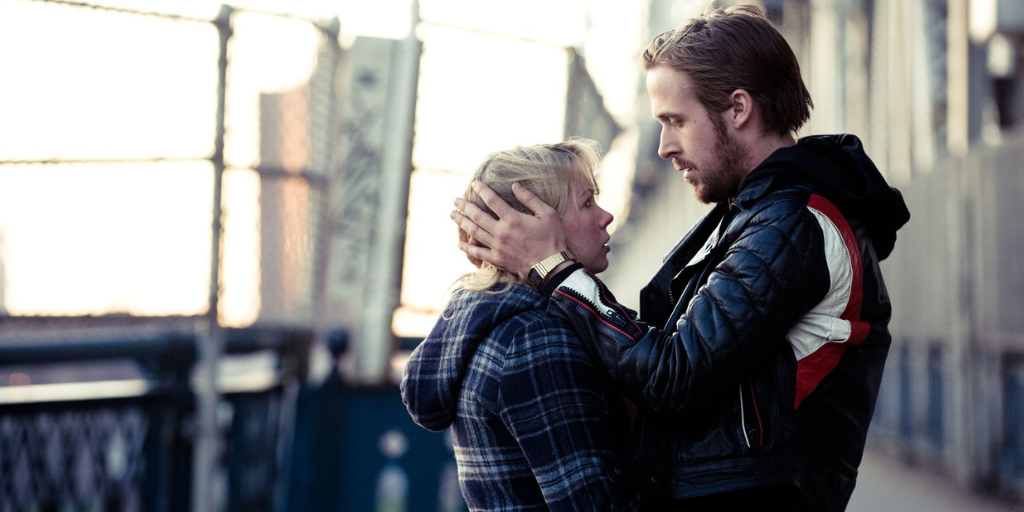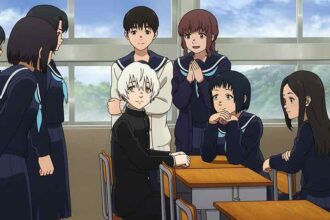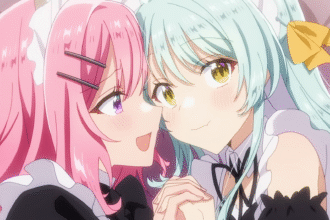Navigating Heartbreak: Analyzing the Complex Finale of Blue Valentine
- Cindy and Dean’s final confrontation leaves viewers debating its implications.
- The film’s structure contrasts joyful memories with painful realities.
- Emotional authenticity makes Blue Valentine a lasting, provocative anti-romance.
Blue Valentine’s closing scenes dispense with any dream of reconciliation. After Cindy admits she wants a divorce, Dean pleads almost desperately for the family’s survival, arguing that love itself should be enough to keep them together.
But Cindy, numbed by years of frustration and unable to ignore the emotional dead end, asserts that her happiness and independence matter too. Their daughter, Frankie, torn by her parents’ crisis, cries for Dean even as Cindy holds her back, amplifying the sense of lasting damage on everyone involved.
The film chooses not to offer hope or catharsis: Dean walks away under exploding fireworks, a jarring visual of celebration over personal destruction. The abruptness and ambiguity, there’s no “lesson learned,” no narrative comfort force viewers to confront heartache without artificial resolution.
The use of cross-cutting between passionate early moments and their raw breakdown intensifies the loss, echoing debates among critics and audiences who’ve questioned whether the split is final or just another pause in an ongoing struggle.
Also read: BLACKPINK Makes History on Spotify with ‘THE ALBUM’
Director Derek Cianfrance intentionally leaves this open, using the fireworks as both a farewell and a reminder of how memories of love can linger amid pain, according to analysis at The Odd Apple and critical discussions across movie forums.
The Roots of Resentment: Was Anyone Really “Wrong”?
What makes Blue Valentine enduringly powerful isn’t just its emotional punch, but how, even now, audiences argue about fault. Early in the relationship, Dean and Cindy are drawn together by need: he’s aimless but open-hearted, and she’s ambitious but wounded by family dysfunction and past relationships.
Dean marries Cindy fully knowing her pregnancy isn’t his, pledging commitment and choosing to raise Frankie, even as doubts and resentment simmer under the surface. Cindy, meanwhile, sacrifices career aspirations, gradually becoming embittered as she perceives Dean’s lack of drive and growing dependence as suffocating.
According to popular critical takes and Reddit debates, neither character emerges as a simple villain. Dean’s stagnation and immaturity frustrate Cindy, making conversations about ambition fraught and often ending in anger or withdrawal.
Cindy’s longing for growth and her inability to communicate it without crushing Dean becomes its own form of cruelty, one that the movie portrays with unflinching honesty.
Their mutual sacrifices and the bitterness they breed spiral into contempt, a dynamic that film critics, including those at HuffPost and the Reddit community, identify as tragically common in real relationships.


The film deliberately avoids easy answers. Conversations still unfold online about whether Dean’s devotion can compensate for his flaws or whether Cindy’s pursuit of fulfillment condemns her unfairly.
The sense of emotional realism and the authenticity that writer-director Cianfrance cultivates fuel the movie’s reputation as one of Hollywood’s most wrenching anti-romances, as cited in various analyses and reflective essays.
Dissecting the Anti-Romance: Why Blue Valentine Stays With Us
More than a decade after its release, Blue Valentine resonates precisely because it refuses to idealize love. Instead, it pairs flashbacks of joyous, spontaneous passion against scenes that are almost claustrophobically intimate, raw, unsparing confrontations where affection has curdled into mutual blame or indifference.
Critics have often linked this structure to the film’s larger message: love alone rarely survives the weight of unmet expectations and unresolved personal pain. The split, when it comes, is not the result of a single betrayal but a slow accumulation of small wounds, lost dreams, and emotional exhaustion.
The film’s honest portrayal has drawn recognition from film circles, with The Academy and HuffPost both citing its complex handling of marital breakdown and rejection of easy sentiment.
By offering neither villain nor victor, Blue Valentine becomes a mirror for viewers’ own anxieties about romance, failure, and the possibility of starting over. This lack of closure may unsettle some, but it’s precisely what keeps the film discussed and recommended in pop culture circles, even as newer romantic dramas come and go.
With its blend of striking visuals, shifting timelines, and stellar performances, Blue Valentine stands as a rare Hollywood film: one that lingers, unsettles, and invites argument, reflection, and empathy long after the fireworks and the marriage have ended.
Also read: A New Flight for the Caped Icon Why James Gunn’s Superman Is Reigniting Oscars Buzz
People Also Ask
- What is the main theme of Blue Valentine?
-
The main theme of Blue Valentine is the complexity of love and the emotional struggles within a failing marriage, highlighting how unmet expectations and personal pain can lead to a breakdown.
- How does the film portray the characters Dean and Cindy?
-
Dean and Cindy are portrayed as complex individuals whose mutual sacrifices and frustrations contribute to their relationship’s deterioration, with neither character emerging as a clear villain.
- What narrative style does Blue Valentine use?
-
Blue Valentine employs a non-linear narrative style, using flashbacks to juxtapose early passionate moments with later raw confrontations, emphasizing the contrast between joy and heartbreak.
- What is the significance of the ending of Blue Valentine?
-
The ending of Blue Valentine is significant for its lack of resolution, showcasing Dean walking away under fireworks, symbolizing the celebration of love amidst personal destruction and leaving viewers to confront the heartache.
- How has Blue Valentine been received by critics?
-
Critics have recognized Blue Valentine for its emotional realism and complex portrayal of marital breakdown, often citing it as one of Hollywood’s most impactful anti-romances.
- What discussions have emerged regarding the characters’ actions in the film?
-
Discussions have emerged about whether Dean’s devotion can compensate for his flaws and whether Cindy’s pursuit of personal fulfillment is unfairly portrayed, reflecting the film’s nuanced exploration of relationships.








